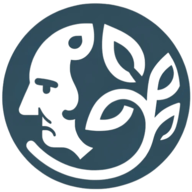Welcome to our in-depth exploration of the most recent advancements in elderly healthcare. As our population ages, the healthcare industry continuously evolves to meet the unique needs of older adults. This blog post will delve into the latest trends, from innovative technologies to new care models, that are shaping the future of elderly healthcare.
Technological Innovations in Elderly Healthcare
The world of technology never ceases to amaze us, especially when it comes to healthcare. For the elderly, these advancements have been nothing short of transformative. Telemedicine, for instance, has emerged as a game-changer. It allows older adults to consult with healthcare professionals from the comfort of their homes, reducing the need for stressful and often difficult travel.
Moreover, wearable health devices are becoming increasingly popular among the elderly. These devices can monitor vital signs, track physical activity, and even detect falls. They provide real-time data to healthcare providers, enabling them to respond promptly to any health concerns.
Artificial intelligence (AI) is another technological trend that's making waves in elderly healthcare. AI can analyze vast amounts of data to predict health issues before they become serious. It's also being used to develop virtual assistants that can remind seniors to take their medication or attend appointments.
The Rise of Home Healthcare
The trend towards home healthcare is gaining momentum. Many seniors prefer to age in place, and home healthcare services make this possible. These services range from medical care, such as wound care and physiotherapy, to assistance with daily activities like bathing and meal preparation.
Home healthcare also offers the advantage of personalized care. Caregivers can tailor their services to the unique needs and preferences of each senior. This personalized approach often results in better health outcomes and improved quality of life for seniors.
Moreover, home healthcare can be more cost-effective than institutional care. It eliminates the costs associated with room and board in nursing homes or assisted living facilities. As such, it's an attractive option for seniors and their families who are concerned about the high costs of long-term care.
Holistic Approaches to Elderly Healthcare
There's a growing recognition that elderly healthcare should not just focus on physical health, but also on mental and emotional well-being. This has led to the rise of holistic approaches to elderly healthcare.
Holistic care considers the whole person, including their physical, emotional, social, and spiritual needs. It recognizes that these aspects are interconnected and that addressing one can have a positive impact on the others.
For example, many healthcare providers are now offering programs that promote social interaction among seniors. These programs can help to reduce feelings of loneliness and isolation, which are common among the elderly and can have a negative impact on their physical health.
Similarly, there's a growing emphasis on mental health care for seniors. This includes providing access to mental health professionals and offering therapies such as cognitive-behavioral therapy and mindfulness-based stress reduction.
The Role of Nutrition in Elderly Healthcare
Nutrition plays a crucial role in elderly healthcare. As people age, their nutritional needs change. They may need fewer calories but more of certain nutrients, such as calcium and vitamin D.
Healthcare providers are increasingly recognizing the importance of providing nutritional guidance to seniors. They're offering services such as nutritional counseling and meal planning to help seniors meet their nutritional needs.
In addition, there's a growing trend towards providing meals to seniors who are unable to prepare meals themselves. These meal delivery services not only ensure that seniors are getting nutritious meals, but they also help to alleviate feelings of loneliness by providing a point of social contact.
The Impact of Policy Changes on Elderly Healthcare
Policy changes can have a significant impact on elderly healthcare. In recent years, there have been several important policy developments that are shaping the future of elderly healthcare.
One of these is the shift towards value-based care. This model of care rewards healthcare providers for the quality of care they provide, rather than the quantity. It encourages providers to focus on preventive care and to manage chronic conditions effectively.
Another important policy development is the expansion of Medicare coverage for home healthcare services. This has made home healthcare more accessible for many seniors and has contributed to the growth of the home healthcare industry.
The Future of Elderly Healthcare
Looking ahead, the future of elderly healthcare is promising. Technological innovations will continue to transform the way care is delivered, making it more efficient and effective.
At the same time, the trend towards home healthcare and holistic care is likely to continue. These approaches offer many benefits for seniors, from improved health outcomes to enhanced quality of life.
Policy changes will also continue to shape the future of elderly healthcare. As our understanding of what works best in elderly healthcare evolves, it's likely that we'll see further policy developments that support these best practices.
Wrapping Up the Latest Developments in Elderly Healthcare
The landscape of elderly healthcare is evolving rapidly, driven by technological innovations, changing care models, and policy developments. These trends are improving the quality of care for seniors and are making it possible for them to live healthier, more fulfilling lives. As we look to the future, it's clear that these trends will continue to shape the future of elderly healthcare, offering exciting possibilities for improving the health and well-being of our aging population.

